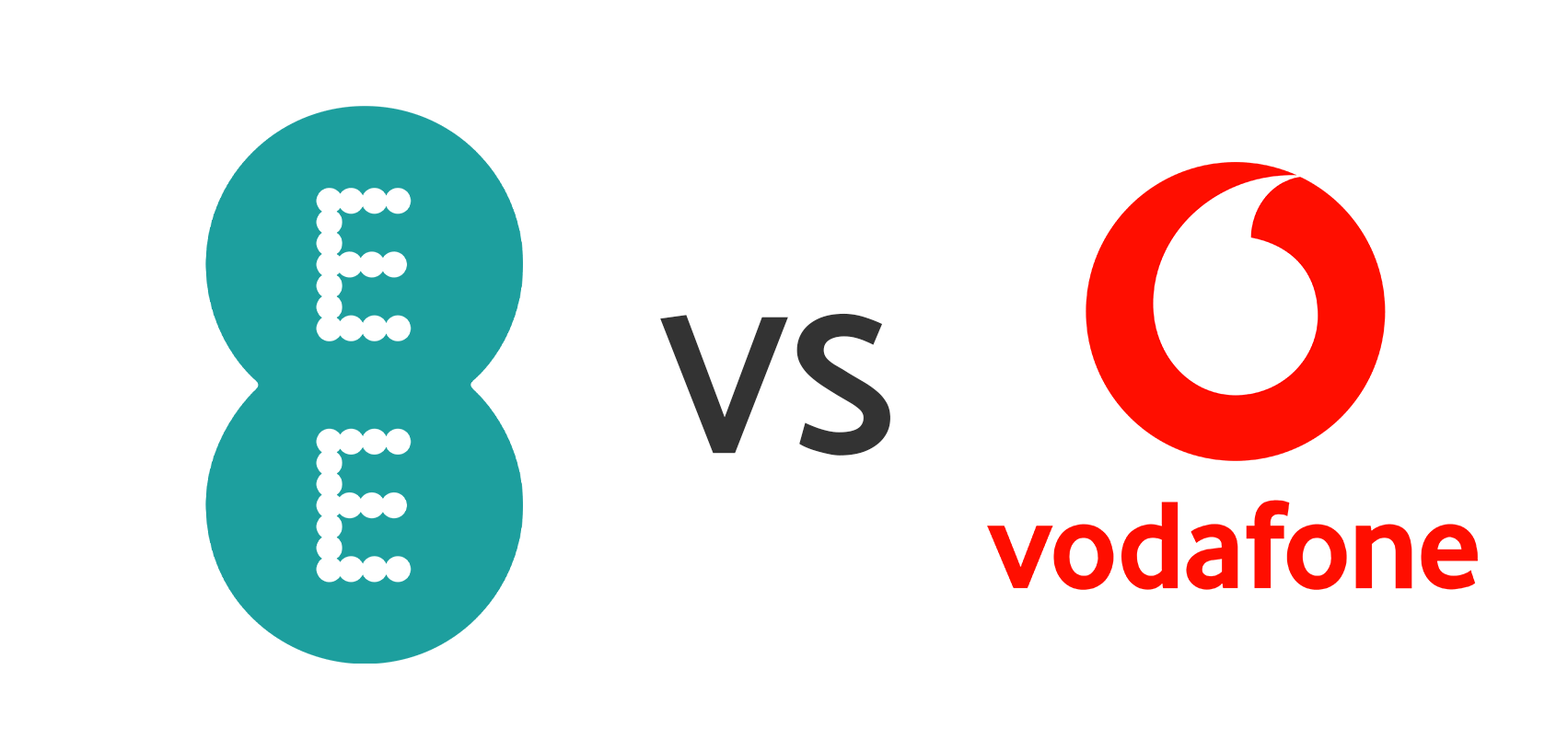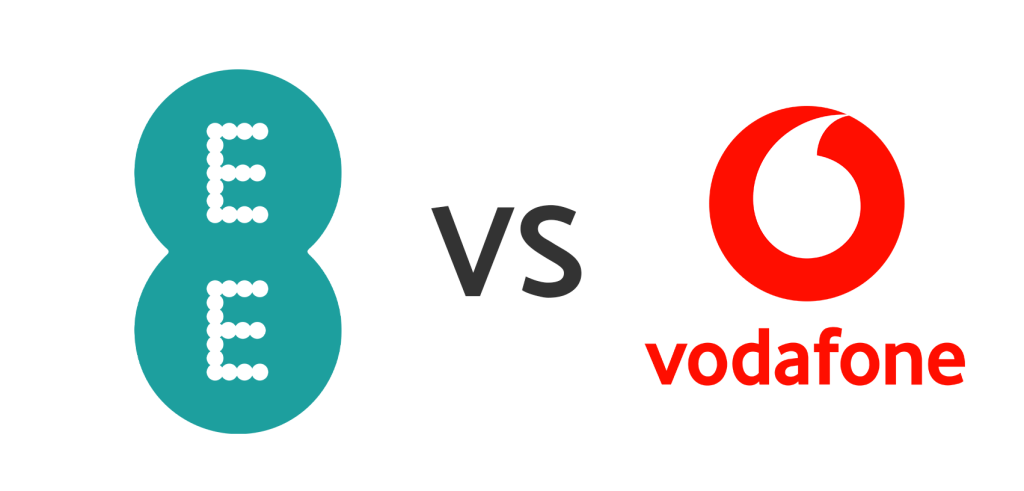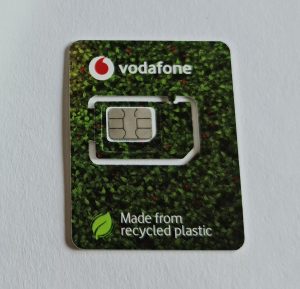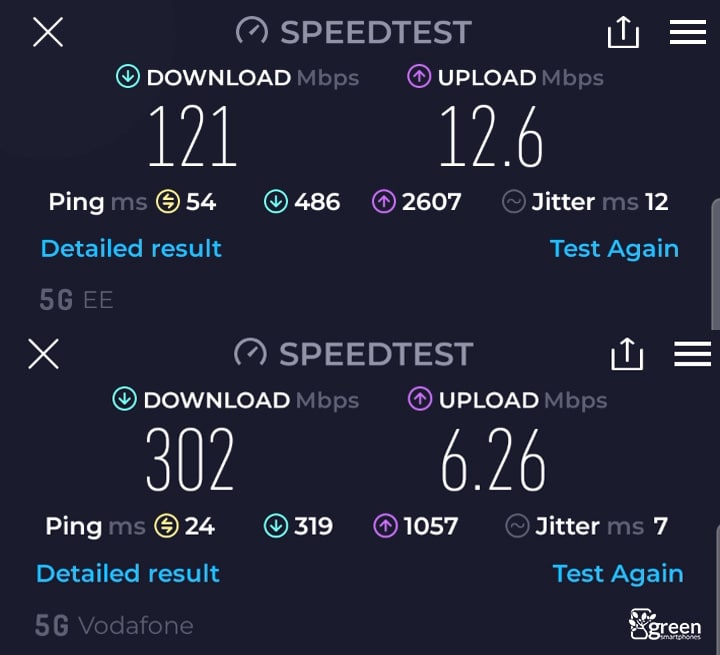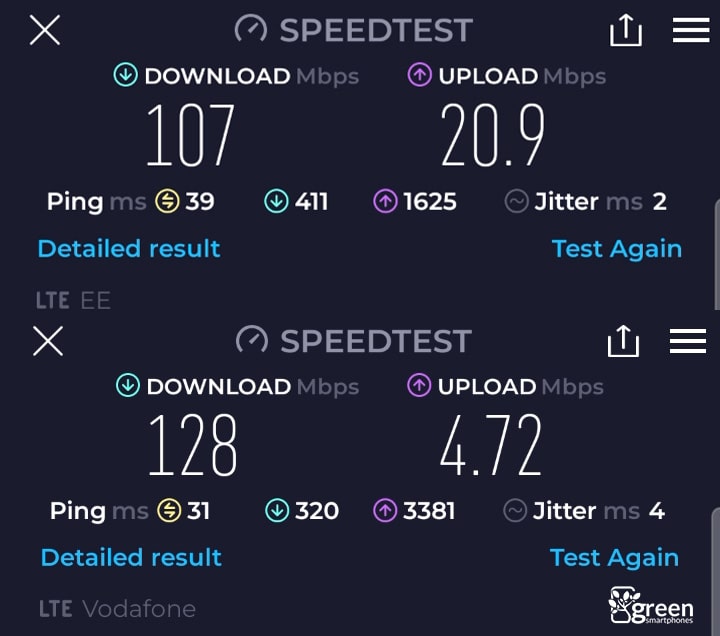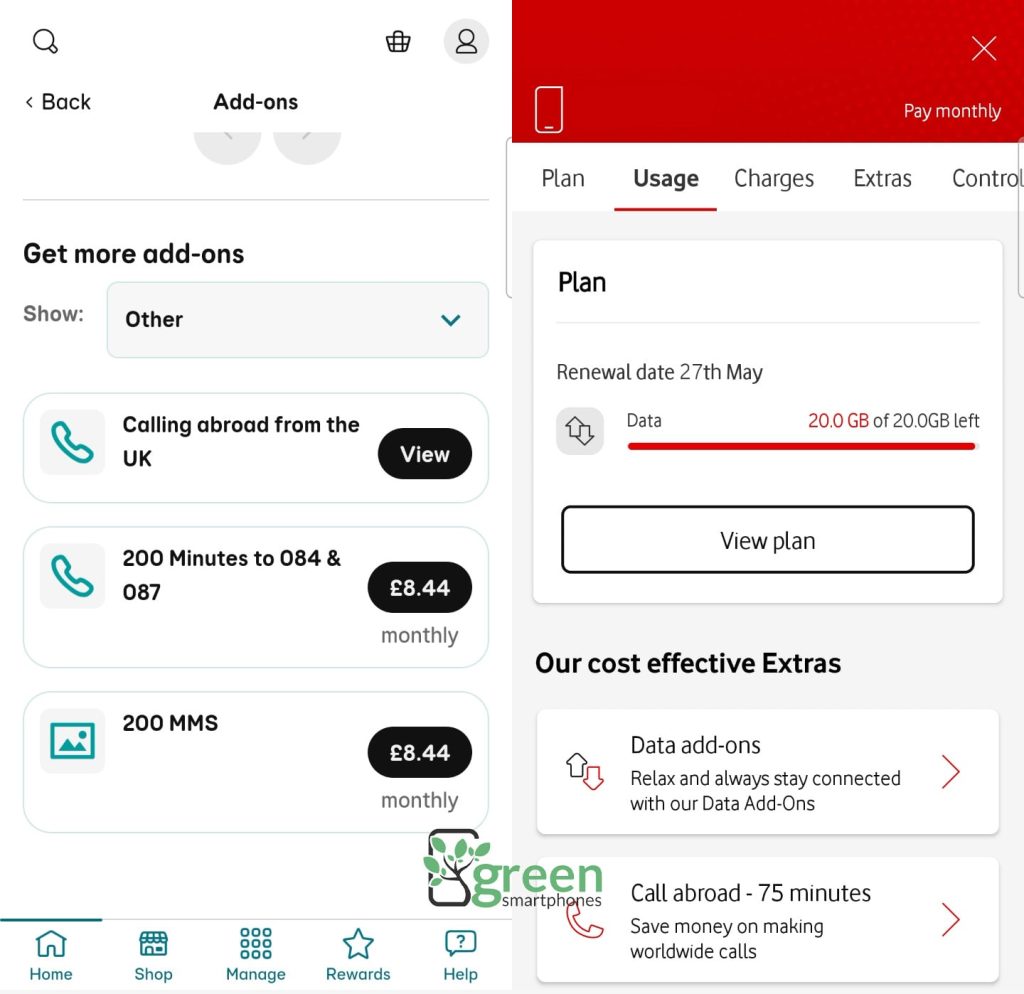Not sure whether to choose EE or Vodafone?
In this article, we’ve compared these two mobile networks based on our experience with each of them, to help you decide which is right for you.
We’ve assessed EE and Vodafone based on their speeds and coverage, value for money, customer service, and more.
Before we begin, if you’re searching for a new mobile plan, on any network, use our comparison site to find the cheapest pay monthly phone plans or SIM-only deals on the market right now.
Contents
- Overview
- Coverage and speeds
- Roaming allowances
- Customer service
- Value for money
- Verdict: should you join EE or Vodafone?
Overview
EE and Vodafone are UK mobile providers that operate their own network infrastructure, rather than leasing access through another network.
They’re part of the big four networks in the UK at the moment, alongside Three and O2.
EE and Vodafone each sell a range of different pay monthly phone contracts and SIM-only deals.
Both also have month-to-month pay as you go SIMs available, although EE’s are quite limited – they come with just 500 minutes per month, and often come with strict speed caps.
The other big similarity between these two networks is how their pay monthly SIM tiers work.
Essentially, on a given phone, or for a given data limit, there are different types of SIM plans you can choose from.
The cheapest ones are often quite basic, and usually have a speed cap. But the more expensive plans come with perks like inclusive roaming, and access to subscription services such as Apple TV+.
EE and Vodafone both also sell home broadband. If you use the same provider for broadband and mobile, you get access to discounted unlimited data SIMs with EE, or a discount on your broadband bill with Vodafone, as long as you’re on a pay monthly mobile contract.
Both of these mobile networks are positioned as more premium options. They both have a huge range of phones available to buy, and are generally both more expensive than the other two major networks in the UK – Three and O2.
We’ve compared EE and Vodafone’s value for money a bit later in the article.
Vodafone has a rewards programme for their customers, called VeryMe Rewards. There is more of a focus on large, randomly-distributed prizes in this programme, compared to more consistent, smaller rewards for Vodafone customers.
EE has a similar rewards programme, but it’s a bit more consistent, with smaller rewards. They have different discounts on offer each week, and you can claim credit towards future bills when you shop with certain stores, which is nice.
Coverage and speeds
EE and Vodafone both offer very good 5G performance – as long as you can avoid getting a plan with a speed limit.
Vodafone is the second-fastest 5G network on average, while EE ranks #3. However, EE 5G covers more of the UK landmass at the moment.
On an unrestricted SIM, we see strong 5G performance on both networks, but Vodafone has a particular advantage in our area.
The problem is, most tariffs on both of these networks are limited to a download speed of 100 Mbps.
This is still plenty of bandwidth for most things you’d want to do on your phone, like downloading apps, or watching YouTube.
But what it means is, if you’re planning on getting a cheaper SIM with a speed limit, EE is a better choice, since you’ll be able to get 5G in more locations – and their upload speeds are a bit better as well.
On 4G, both networks perform well, but EE wins overall, because they have the best 4G coverage of any UK mobile network right now.
We found we could sometimes get online in places we couldn’t with Vodafone, especially in more remote locations.
Though, we experienced solid calling performance on both networks, even on trains, or when driving – we couldn’t split them when it came to call quality.
Vodafone is a bit faster on our street, but EE once again has the upper hand when it comes to upload speeds.
So overall, we think EE performs better than Vodafone when it comes to speeds and coverage, though Vodafone 5G is faster if you’re on an unrestricted SIM.
No matter what type of SIM you’re buying, we think EE is often worth choosing for their better coverage at the moment.
Roaming allowances
EE and Vodafone are not the most generous when it comes to their roaming allowances.
Essentially, both networks make you pay for a roaming add-on when travelling, unless you have a more expensive plan with roaming already included.
It’s not like with O2, where EU roaming is included free of charge on most of their plans, including their pay as you go SIMs.
When it comes to roaming, the advantage EE has is their roaming fair usage limit is 50GB, compared to just 25GB with Vodafone, meaning you can use more of your allowance overseas each month.
However, EE’s roaming add-ons are more expensive than Vodafone’s, especially for pay as you go customers.
We really wouldn’t recommend roaming with EE, unless it’s included free of charge as a perk of your plan.
Vodafone’s roaming add-ons are generally much more reasonably priced, especially for longer trips abroad.
Something good to know: if you buy a Vodafone SIM with roaming included, this normally means that the plan has no speed limit in the UK, and it’s the same with EE.
So, these tariffs can be good to look out for, though they aren’t cheap to buy.
Customer service
EE and Vodafone both offer great customer service compared to most other mobile networks.
According to Ofcom data, both of these providers receive just two complaints per hundred thousand subscribers on average – joint-lowest compared to the rest of the big four (Three has three, and O2 has four).
Both EE and Vodafone have UK-based support, and they’re both fairly easy to get in touch with.
We think Vodafone performs better over live chat, while EE has better phone support.
No matter how you get in touch though, both providers’ customer support teams are helpful, based on the billing and account queries we tested them with.
It’s also fairly easy to cancel your service, assuming you’re out of contract, which is good.
Also, we were quite happy with the EE and Vodafone mobile apps.
They’re both modern, which is surprising given how glitchy the Vodafone website can be sometimes – you might notice this if you try to buy a SIM from them.
With both mobile apps, it’s easy to access the information you need, buy extras, and claim rewards as well.
Value for money
Neither of these two mobile networks are the cheapest option on the market.
Three is generally a lot cheaper, when you look at similar phone or SIM contracts, and O2 sometimes offers lower prices as well (though their 5G signal is the worst of the big four).
However, if you’re looking for a premium mobile network, we think EE tends to offer better value for money than Vodafone, at least on pay monthly contracts.
EE are sometimes more expensive than Vodafone, but give you more in return – such as better 4G and 5G coverage.
On a pay as you go SIM though, Vodafone is generally better value, given they include unlimited calls and texts as standard, which isn’t the case on EE’s rolling monthly SIM deals.
If you’re looking for a cheaper way to access these mobile networks, you might also like to consider using an MVNO.
1pMobile sells pay as you go SIMs on the EE network, while VOXI piggybacks off Vodafone infrastructure.
Verdict: should you join EE or Vodafone?
We think in general, EE has the edge over Vodafone.
They offer better 4G and 5G coverage, and have a higher roaming fair usage limit, if you get a plan with inclusive roaming.
However, it’s still quite close between the two providers. Vodafone offers faster 5G if you have an unrestricted SIM, and their pay as you go plans offer better value for money.
We’d definitely recommend comparing these two providers’ prices on the specific data limit or handset you’re looking for, to help you choose between them – since their prices are generally very similar.
And if you have any questions about the differences between EE and Vodafone, leave us a comment below, and we’ll get back to you as soon as we can.
About the author

Tom is the founder of Green Smartphones. You’ll find him writing about phones on the Green Smartphones blog, or talking about SIM deals and mobile networks on our YouTube channel. He’s the Android expert on the team – currently using a Google Pixel 9, recently upgrading from a very long-suffering Note 20 Ultra. When he’s not working on Green Smartphones, you’ll find him playing football or hiking.


